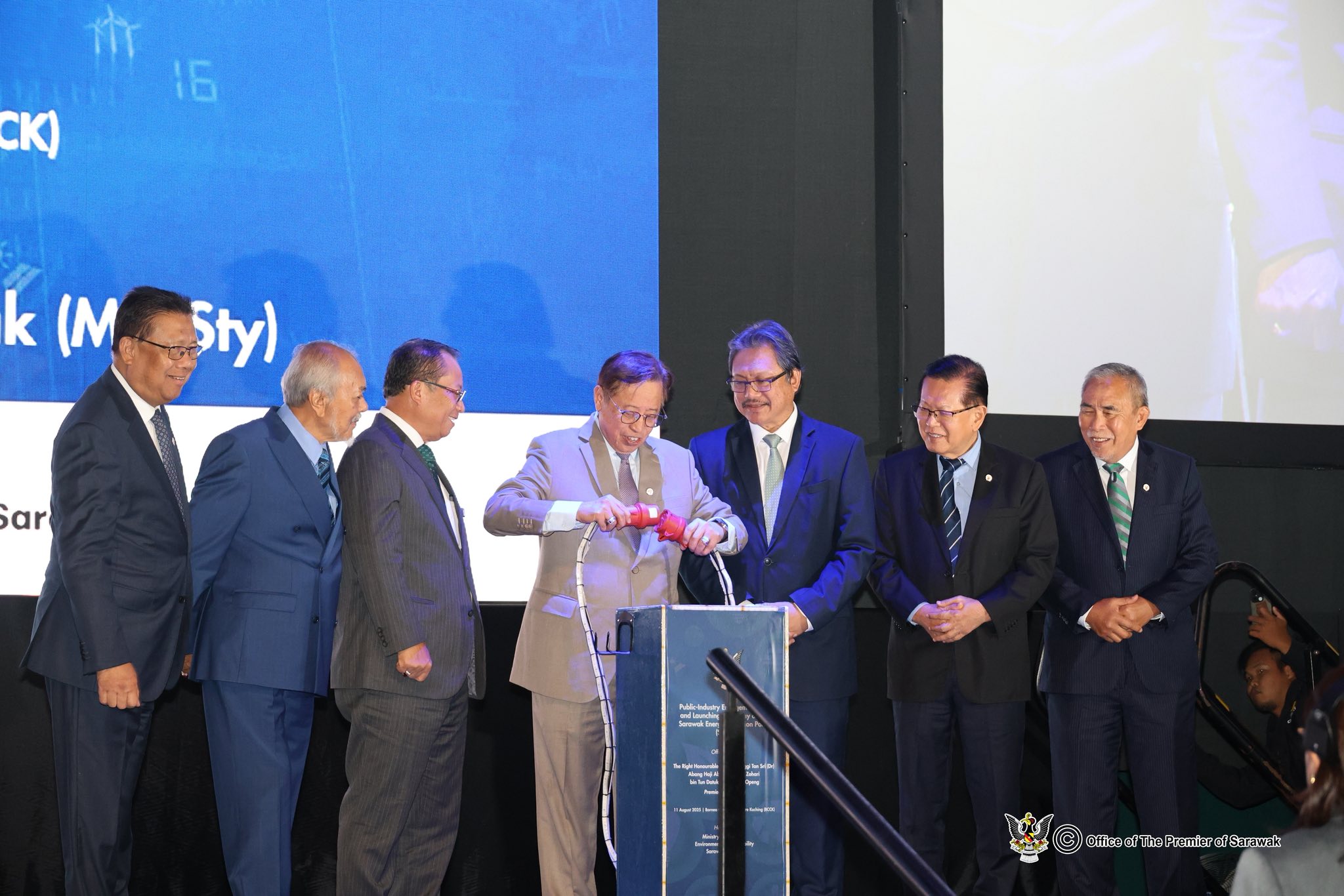OGOS 2025
Sarawak Launches Landmark Energy Transition Policy To Drive Low-Carbon Future

KUCHING, 11 August 2025 – Premier of Sarawak, Datuk Patinggi Tan Sri (Dr) Abang Abdul Rahman Zohari Tun Datuk Abang Openg, today officially launched the Sarawak Energy Transition Policy (SET-P), a transformative framework aimed at guiding the state towards a low-carbon, secure, and inclusive energy future.
Speaking at the launching ceremony at the Borneo Convention Centre Kuching (BCCK), the Premier said SET-P is part of three landmark policies unveiled by the Sarawak government to strengthen environmental and economic resilience. The other two are the Sarawak Sustainability Blueprint 2030 and the Sarawak Hydrogen Economy Roadmap (SHER).
“This inaugural industry engagement is just the beginning. We will embark on a statewide roadshow to raise awareness and foster a deeper understanding of these policies among all Sarawakians,” he said.
The SET-P consolidates existing energy strategies under a unified framework addressing energy security, environmental sustainability, and economic affordability. By 2050, the policy is projected to contribute RM550 billion in cumulative GDP, create over 80,000 high-paying jobs, and attract RM580 billion to RM700 billion in investments primarily in renewable energy, natural gas, carbon capture utilisation and storage (CCUS), and clean hydrogen.
The Premier outlined seven strategic pillars under SET-P: renewable energy, natural gas, energy efficiency, low-carbon mobility, clean hydrogen, CCUS, and alternative energy. These are supported by five key enablers, including strong governance, innovative financing, robust infrastructure, technological innovation, and skilled workforce development.
He stressed that while Sarawak’s policies align with Malaysia’s national frameworks such as the National Energy Transition Roadmap (NETR) and National Energy Policy (NEP), they are tailored to the state’s unique geography, resources, and development priorities.
Abang Johari also announced plans for a blended finance facility to support catalytic infrastructure and transition-aligned investments, particularly in projects with below-market returns such as clean hydrogen production and natural gas hub infrastructure.
“The Sarawak Energy Transition Policy is built on inclusivity. Its success depends on strong collaboration between government, industry, academia, civil society, and communities, as well as international partners,” he said, urging private investors and development partners to participate.
He revealed that Saudi Arabia’s ACWA Power has proposed a US$10 billion investment in Sarawak, focusing on solar energy and hydrogen production, in partnership with Saudi Aramco.
“With partnerships from Saudi Arabia and other global friends, we will realise Sarawak’s energy transition vision,” he said.